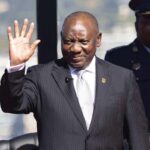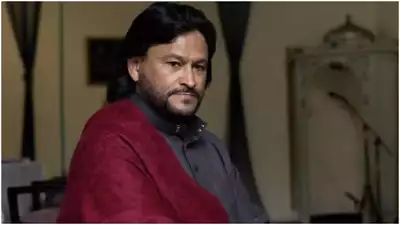South African President Cyril Ramaphosa has called on BRICS nations to intensify their efforts in creating a collaborative environment for advancing technology within the bloc, emphasizing the need to address pressing issues like cross-border taxation and data privacy. Speaking at the recent BRICS summit, Ramaphosa highlighted that technology and economic integration are crucial pillars for achieving shared prosperity, urging member states to unite in shaping policies that enable robust growth and innovation.
Ramaphosa underscored that the future of BRICS depends on its ability to leverage technology to drive sustainable development, improve trade, and foster socio-economic inclusion. As digital innovation continues to reshape industries and global markets, BRICS nations—Brazil, Russia, India, China, and South Africa—have a unique opportunity to influence the global tech landscape, especially by developing policies that facilitate cross-border trade and investment within the bloc.
“Advancing technology requires us to work collaboratively on both a policy and practical level,” Ramaphosa stated, noting that one of the major challenges BRICS countries face is harmonizing regulatory standards across different sectors. The lack of alignment, he pointed out, creates obstacles for businesses and limits the bloc’s potential to form a seamless digital economy. By establishing common standards and best practices in areas such as cross-border taxation, data governance, and cybersecurity, BRICS could streamline trade and investment flows, ultimately benefiting the economies of all member states.
Ramaphosa particularly emphasized the urgency of addressing cross-border taxation and data privacy—two issues that are increasingly critical as digital trade grows across borders. Cross-border taxation has proven to be a complex issue for countries around the world, and BRICS is no exception. Businesses operating in multiple jurisdictions face challenges navigating differing tax laws, which can stifle innovation and create inefficiencies. By developing a unified framework for cross-border taxation, BRICS nations could reduce these barriers, providing a more favorable environment for businesses to operate within the bloc.
“An aligned approach to cross-border taxation could encourage trade within BRICS and attract investment from external markets, which will ultimately benefit our economies and our people,” Ramaphosa said. He added that cooperation on taxation could also help prevent the loss of revenue that results from regulatory discrepancies, allowing BRICS countries to redirect resources toward essential services like healthcare, education, and infrastructure.
On the issue of data privacy, Ramaphosa highlighted that data security is fundamental to building trust within digital economies. He urged BRICS members to collaborate on frameworks that protect citizens’ data while enabling the smooth flow of information across borders. With countries like China and India emerging as global technology leaders, Ramaphosa emphasized the importance of developing common standards that safeguard user data without stifling innovation.
“As we deepen our integration, data privacy becomes an issue not just of policy, but of trust and partnership,” Ramaphosa said, highlighting that without adequate protections, both citizens and businesses could be at risk. He urged BRICS countries to build data privacy protocols that align with international best practices, ensuring the security of personal information while supporting economic growth.
To support these ambitions, Ramaphosa called for the establishment of a BRICS Technology and Innovation Working Group, which would facilitate knowledge sharing, foster joint research, and identify strategic projects that could be developed collaboratively. Such an initiative, he suggested, could help accelerate technological advancement within the bloc by leveraging the unique strengths of each member state. For instance, while South Africa has a thriving fintech sector, India and China are leaders in digital infrastructure and software development, and Brazil and Russia have advanced capabilities in energy and aerospace technologies.
Ramaphosa also reiterated South Africa’s commitment to inclusive development, stressing that technology must serve the people and enhance the quality of life across BRICS nations. By focusing on inclusive policies, he argued, BRICS could harness technology to address some of the bloc’s most pressing social issues, including unemployment, access to education, and healthcare delivery.














Leave a comment